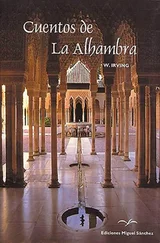By the time the laconic clock of the castle had struck two we had finished our dinner. So, taking leave of our Seville friends, and leaving the millers still under the hands of the barber, we set off on our ride across the campina. It was one of those vast plains, common in Spain, where for miles and miles there is neither house nor tree. Unlucky the traveller who has to traverse it, exposed as we were to heavy and repeated showers of rain. There is no escape nor shelter. Our only protection was our Spanish cloaks, which nearly covered man and horse, but grew heavier every mile. By the time we had lived through one shower we would see another slowly but inevitably approaching; fortunately in the interval there would be an outbreak of bright, warm, Andalusian sunshine, which would make our cloaks send up wreaths of steam, but which partially dried them before the next drenching.
Shortly after sunset we arrived at Arahal, a little town among the hills. We found it in a bustle with a party of miquelets, who were patrolling the country to ferret out robbers. The appearance of foreigners like ourselves was an unusual circumstance in an interior country town; and little Spanish towns of the kind are easily put in a state of gossip and wonderment by such an occurrence. Mine host, with two or three old wiseacre comrades in brown Cloaks, studied our passports in a corner of the posada, while an Alguazil took notes by the dim light of a lamp. The passports were in foreign languages and perplexed them, but our Squire Sancho assisted them in their studies, and magnified our importance with the grandiloquence of a Spaniard. In the mean time the magnificent distribution of a few cigars had won the hearts of all around us; in a little while the whole community seemed put in agitation to make us welcome. The corregidor himself waited upon us, and a great rush-bottomed armchair was ostentatiously bolstered into our room by our landlady, for the accommodation of that important personage. The commander of the patrol took supper with us — a lively, talking, laughing Andaluz, who had made a campaign in South America, and recounted his exploits in love and war with much pomp of phrase, vehemence of gesticulation, and mysterious rolling of the eye. He told us that he had a list of all the robbers in the country, and meant to ferret out every mother’s son of them; he offered us at the same time some of his soldiers as an escort. “One is enough to protect you, senores; the robbers know me, and know my men; the sight of one is enough to spread terror through a whole sierra.” We thanked him for his offer, but assured him, in his own strain, that with the protection of our redoubtable squire, Sancho, we were not afraid of all the ladrones of Andalusia.
While we were supping with our Drawcansir friend, we heard the notes of a guitar, and the click of castanets, and presently a chorus of voices singing a popular air. In fact mine host had gathered together the amateur singers and musicians, and the rustic belles of the neighborhood, and, on going forth, the courtyard or patio of the inn presented a scene of true Spanish festivity. We took our seats with mine host and hostess and the commander of the patrol, under an archway opening into the court; the guitar passed from hand to hand, but a jovial shoemaker was the Orpheus of the place. He was a pleasant-looking fellow, with huge black whiskers; his sleeves were rolled up to his elbows. He touched the guitar with masterly skill, and sang a little amorous ditty with an expressive leer at the women, with whom he was evidently a favorite. He afterwards danced a fandango with a buxom Andalusian damsel, to the great delight of the spectators. But none of the females present could compare with mine host’s pretty daughter, Pepita, who had slipped away and made her toilette for the occasion, and had covered her head with roses; and who distinguished herself in a bolero with a handsome young dragoon. We ordered our host to let wine and refreshment circulate freely among the company, yet, though there was a motley assembly of soldiers, muleteers, and villagers, no one exceeded the bounds of sober enjoyment. The scene was a study for a painter: the picturesque group of dancers, the troopers in their half military dresses, the peasantry wrapped in their brown cloaks; nor must I omit to mention the old meagre Alguazil, in a short black cloak, who took no notice of any thing going on, but sat in a corner diligently writing by the dim light of a huge copper lamp, that might have figured in the days of Don Quixote.
The following morning was bright and balmy, as a May morning ought to be, according to the poets. Leaving Arahal at seven o’clock, with all the posada at the door to cheer us off we pursued our way through a fertile country, covered with grain and beautifully verdant; but which in summer, when the harvest is over and the fields parched and brown, must be monotonous and lonely; for, as in our ride of yesterday, there were neither houses nor people to be seen. The latter all congregate in villages and strongholds among the hills, as if these fertile plains were still subject to the ravages of the Moor.
At noon we came to where there was a group of trees, beside a brook in a rich meadow. Here we alighted to make our midday meal. It was really a luxurious spot, among wild flowers and aromatic herbs, with birds singing around us. Knowing the scanty larders of Spanish inns, and the houseless tracts we might have to traverse, we had taken care to have the alforjas of our squire well stocked with cold provisions, and his bota, or leathern bottle, which might hold a gallon, filled to the neck with choice Valdepenas wine. *As we depended more upon these for our well-being than even his trabuco, we exhorted him to be more attentive in keeping them well charged; and I must do him the justice to say that his namesake, the trencher-loving Sancho Panza, was never a more provident purveyor. Though the alforjas and the bota were frequently and vigorously assailed throughout the journey, they had a wonderful power of repletion, our vigilant squire sacking every thing that remained from our repasts at the inns, to supply these junketings by the roadside, which were his delight.
On the present occasion he spread quite a sumptuous variety of remnants on the greensward before us, graced with an excellent ham brought from Seville; then, taking his seat at a little distance, he solaced himself with what remained in the alforjas. A visit or two to the bota made him as merry and chirruping as a grasshopper filled with dew. On my comparing his contents of the alforjas to Sancho’s skimming of the fleshpots at the wedding of Camacho, I found he was well versed in the history of Don Quixote, but, like many of the common people of Spain, firmly believed it to be a true history.
“All that happened a long time ago, senor,” said he, with an inquiring look.
“A very long time,” I replied.
“I dare say more than a thousand years” — still looking dubiously.
“I dare say not less.”
The squire was satisfied. Nothing pleased the simple-hearted varlet more than my comparing him to the renowned Sancho for devotion to the trencher, and he called himself by no other name throughout the journey.
Our repast being finished, we spread our cloaks on the greensward under the tree, and took a luxurious siesta in the Spanish fashion. The clouding up of the weather, however, warned us to depart, and a harsh wind sprang up from the southeast. Towards five o’clock we arrived at Osuna, a town of fifteen thousand inhabitants, situated on the side of a hill, with a church and a ruined castle. The posada was outside of the walls; it had a cheerless look. The evening being cold, the inhabitants were crowded round a brasero in a chimney corner; and the hostess was a dry old woman, who looked like a mummy. Every one eyed us askance as we entered, as Spaniards are apt to regard strangers; a cheery, respectful salutation on our part, caballeroing them and touching our sombreros, set Spanish pride at ease; and when we took our seat among them, lit our cigars, and passed the cigar-box round among them, our victory was complete. I have never known a Spaniard, whatever his rank or condition, who would suffer himself to be outdone in courtesy; and to the common Spaniard the present of a cigar (puro) is irresistible. Care, however, must be taken never to offer him a present with an air of superiority and condescension; he is too much of a caballero to receive favors at the cost of his dignity.
Читать дальше












